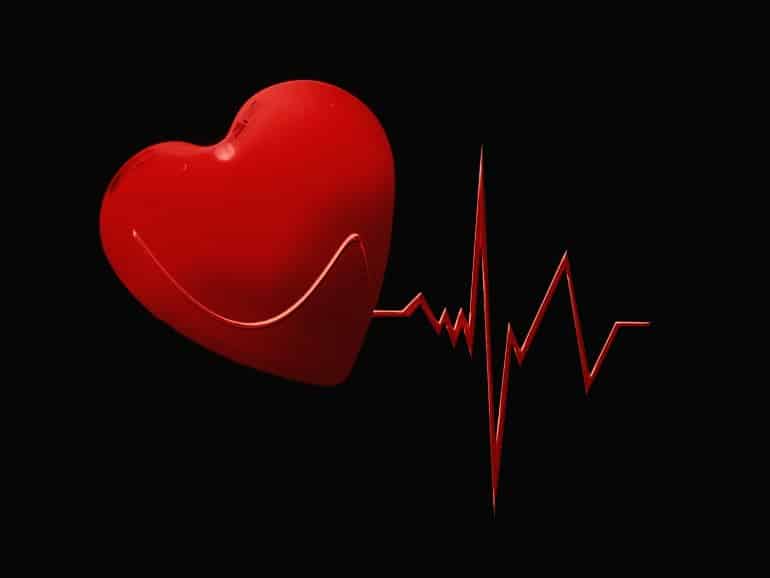Summary: Men with hypertension more often recognized angry expressions when looking at the face of another person. The anger recognition bias contributed to blood pressure increases over time if a person frequently tends to feel angry.
Source: University of Konstanz
Hypertension is a disease. However, in the majority of cases, there is no clear medical explanation, referred to as “essential hypertension”. Could psychological factors play a role?
In this context, Konstanz biological health psychologists Alisa Auer and Professor Petra Wirtz conducted a study in male participants over several years together with colleagues from Konstanz (Germany) and Switzerland.
The researchers wanted to better understand the psychobiosocial mechanisms in hypertension, since previous work in this area has left many questions open.
In an article published in the Annals of Behavioral Medicine on 22nd March 2022, they show that compared to a healthy control group, men with essential hypertension more often recognized angry expressions when they looked into the faces of others.
In addition, this anger recognition bias seems to contribute to blood pressure increases over time if someone tends to frequently and intensively experience anger. This tendency is called “trait anger”.
Recognition of mixed emotions
In their study in 145 hypertensive and normotensive men, researchers presented different pictures of people who were angry. However, the pictures did not just display anger alone, but combined anger with one of three other emotions: fear, happiness, and sadness. The background for this approach is that, in everyday life, people’s faces rarely show just one emotion.
Mixed emotions are more prevalent. Each of the computer-morphed pictures showed two emotions with varying affect intensities. Participants were asked which emotion they saw in the pictures.
“Hypertensive men recognized anger more often than any other emotion,” Alisa Auer says. “So, they overrated anger displayed in other people’s faces as compared to our healthy control group.”
Petra Wirtz adds: “Overrating anger displayed by other persons seems to affect whether high ‘trait anger’ contributes to blood pressure increases over time.”
Hence, interpersonal factors seem to play a role in essential hypertension. The expectation of associations between hypertension and social aspects was one of the reasons why the study was supported by the Cluster of Excellence “Centre for the Advanced Study of Collective Behaviour”.
Improving treatment of essential hypertension
Auer and Wirtz hope that their results will be examined and confirmed by other researchers. “Then, a next step would be to offer people with essential hypertension a more targeted support,” says Alisa Auer, who is currently completing her doctorate in Psychology. Auer is thinking of “therapeutic treatments that address a person’s perception of social environments in order to protect them from other people´s anger.”

Such therapeutic interventions would be important, because blood pressure lowering medication only treats the consequences of hypertension, but does not address potential causes. In addition, hypertension is one of the major risk factors for cardiovascular disease. In 2020, as in previous years, the Federal Statistical Office (Destatis) listed cardiovascular disease as the leading cause of death in Germany.
“338,001 deaths, or more than one third of all deaths (34%), can be attributed to cardiovascular disease,” Destatis reports in a press release.
Cardiovascular disease is especially deadly for older people: 93% of those who died of cardiovascular disease were 65 years or older.
What about women? The researchers hope that future studies will include women. Since women may possibly differ in their emotion recognition from men and as fewer women suffer from hypertension, the study initially focused on men.
About this hypertension and emotion research news
Author: Press Office
Source: University of Konstanz
Contact: Press Office – University of Konstanz
Image: The image is in the public domain
Original Research: Closed access.
“Do Hypertensive Men Spy With an Angry Little Eye? Anger Recognition in Men With Essential Hypertension – Cross-sectional and Prospective Findings” by Alisa Auer et al. Annals of Behavioral Medicine
Abstract
Do Hypertensive Men Spy With an Angry Little Eye? Anger Recognition in Men With Essential Hypertension – Cross-sectional and Prospective Findings
Background
Higher trait anger has inconsistently been associated with hypertension and hypertension development, but social context in terms of recognition of other persons’ anger has been neglected in this context.
Purpose
Here, we investigated anger recognition of facial affect and trait anger in essential hypertensive and normotensive men in addition to prospective associations with blood pressure (BP) increases.
Methods
Baseline assessment comprised a total of 145 participants including 57 essential hypertensive and 65 normotensive men who were otherwise healthy and medication-free. Seventy-two eligible participants additionally completed follow-up assessment 3.1 (±0.08 SEM) years later to analyze BP changes over time. We assessed emotion recognition of facial affect with a paradigm displaying mixed facial affect of two morphed basic emotions including anger, fear, sadness, and happiness. Trait anger was assessed with the Spielberger trait anger scale.
Results
Cross-sectionally, we found that with increasing BP, hypertensive men overrated anger displayed in facial expressions of mixed emotions as compared to normotensive men (ps ≤ .019) while there were no differences in trait anger (p = .16). Prospectively, the interaction between mean anger recognition and trait anger independently predicted BP increases from baseline to follow-up (ps ≤ .043), in that overrating displayed anger predicted future BP increases only if trait anger was high.
Conclusions
Our findings indicate an anger recognition bias in men with essential hypertension and that overrating displayed anger in combination with higher trait anger seems to predict future BP increases. This might be of clinical relevance for the development and progression of hypertension and cardiovascular disease.







